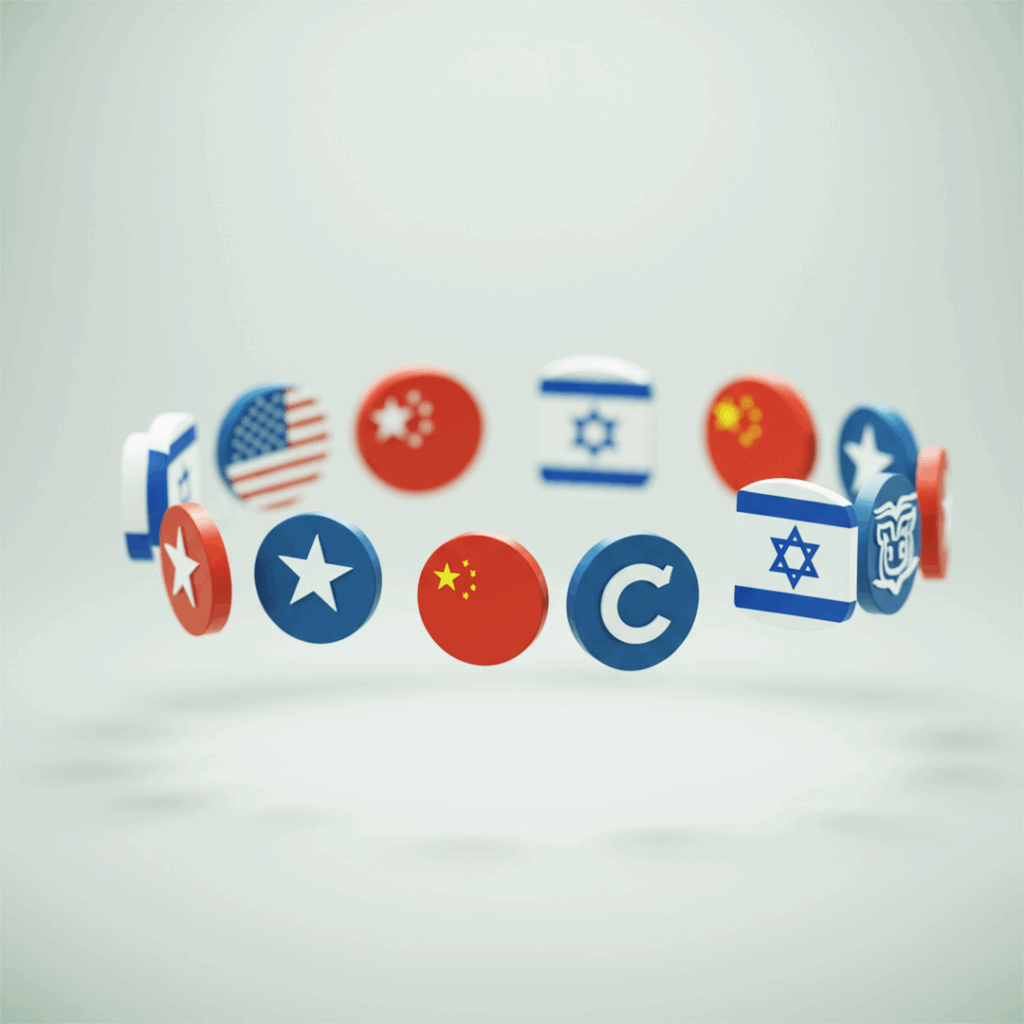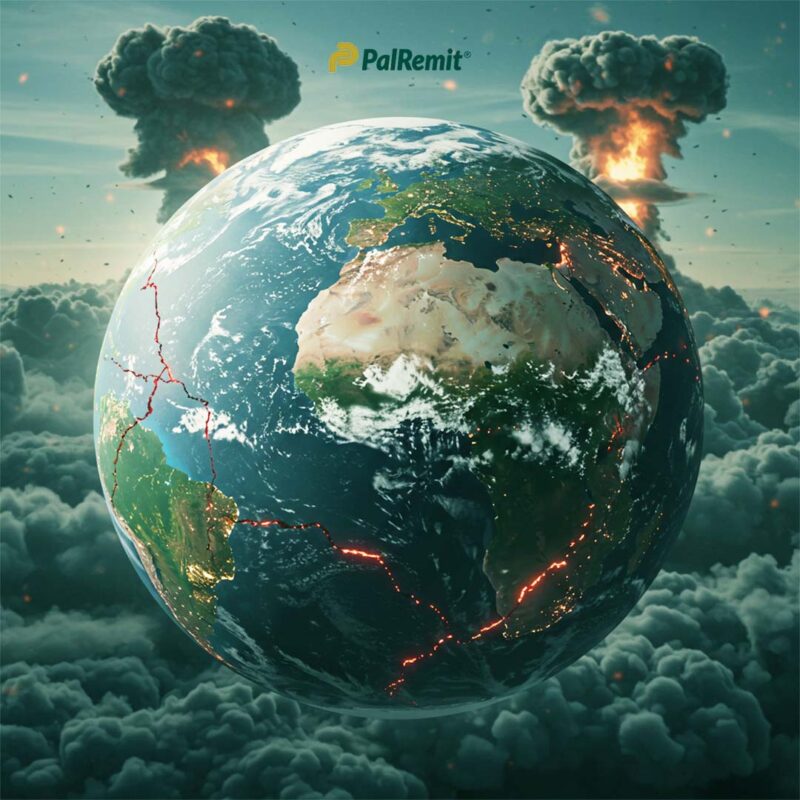Power, in the wrong hands, puts the world on a countdown.
From headlines on missile tests in the Middle East to NATO’s emergency meetings in Europe, the world is once again gripped by a familiar fear: nuclear escalation. This begs an urgent and unnerving question: Is the world moving closer to another nuclear war?
The short answer may be no, but the risks are obviously growing, and the global tension has been this high. Behind every diplomatic warning or military manoeuvre lies a deeper issue: Why do world powers go to such extremes to prevent other nations from building nuclear weapons?
This post breaks down the logic behind global nuclear resistance, how deterrence works, why nuclear inequality persists, and what is truly at stake in 2025.
What Is Nuclear Deterrence and Why Does It Keep Working?
At the heart of modern nuclear policy is a concept known as Mutually Assured Destruction (MAD). It suggests that if two countries each have the capacity to destroy the other, neither will strike first. The fear of annihilation becomes the main reason for peace.
This system has prevented nuclear-armed countries from attacking each other since the end of the Cold War. However, deterrence depends on a fragile set of assumptions:
- That leaders act rationally
- That communication lines are always open
- That nuclear systems are secure from error or cyberattack
In a world of political instability, power tussles for resource control, and misinformation, these assumptions are gradually being eroded.
Why Do Countries Still Want Nuclear Weapons?
For many countries, nuclear weapons represent more than defence; they symbolise sovereignty, respect, and leverage. Possessing them can deter invasion, elevate international status, and provide a form of strategic independence.
Nations that feel threatened by existing nuclear powers, such as those surrounded by U.S. or Russian influence, may seek nuclear arms as a way to protect themselves.
However, once one country goes nuclear, it often triggers a chain reaction: neighbouring countries begin to pursue their programs. This is known as regional proliferation and is a major reason why the global community acts swiftly to prevent it.
Why Do World Powers Try to Stop New Nuclear Nations?
Global powers claim that stopping nuclear proliferation preserves peace. That claim is partly true, but it is also shaped by power dynamics.
Here are the main reasons world powers oppose nuclear weapon builders:
1. Preventing Regional Arms Races
If one country acquires nuclear weapons, others nearby may follow. This increases the risk of conflict and reduces the effectiveness of international diplomacy.
2. Maintaining Global Power Hierarchies
Nuclear weapons are strategic tools that give nations immense power. Existing nuclear states have little interest in expanding that club. They fear losing their military, political, and economic dominance.
3. Protecting Global Security Infrastructure
The spread of nuclear technology increases the chance that dangerous materials will fall into the hands of terrorist groups or unstable regimes.
4. Upholding Non-Proliferation Agreements
Treaties like the Nuclear Non-Proliferation Treaty (NPT) aim to limit the spread of nuclear weapons. Countries that pursue weapons outside this system are seen as breaking international law and threatening global stability.
5. Avoiding Mistakes and Miscalculations
More nuclear players mean more chances for mistakes. False alarms, communication errors, or system hacks can trigger unintended consequences.
Who Actually Has Nuclear Weapons Today?
As of 2025, nine countries possess nuclear weapons: United States, Russia, China, France, United Kingdom, India, Pakistan, North Korea and Israel (undeclared)
Other nations, including Iran and potentially Saudi Arabia, are either under suspicion or pressure to clarify their nuclear intentions.
Despite the NPT, none of the major nuclear powers has fully disarmed. Critics argue that this double standard, where some are allowed to keep weapons and others are not, undermines the moral credibility of non-proliferation efforts.

Are We Really Close to Nuclear War in 2025?
The short answer: not imminently, but the risk is increasing.
In June 2025, according to multiple reports from Reuters and Al Jazeera, Israeli and U.S. strikes on Iranian nuclear sites at Isfahan and Fordow prompted Iran to launch over 500 retaliatory missiles toward military and diplomatic targets.
Though nuclear weapons were not used, the event underscored how quickly geopolitical crises can spiral into global security threats.
Military alliances like NATO are being tested. Diplomatic relationships among nuclear powers are strained. The systems meant to prevent nuclear war are getting increasingly fragile.
Former U.S. Secretary of Defence William Perry once said,
“The danger of a nuclear catastrophe is greater than during the Cold War.”
His warning echoes louder in today’s fractured world.

The Global Fallout: Three Major Impacts of Nuclear Conflict
Even without a single nuclear detonation, the threat of nuclear conflict has sent powerful shockwaves across the globe. From displacement to environmental collapse to financial instability, the world could feel the impact far beyond any missile’s range.
1. Humanitarian Crisis and Mass Displacement
Nuclear escalation, whether real or threatened, instantly disrupts civilian life. Populations near conflict zones face evacuation, infrastructure collapse, and food and medical shortages. Refugee flows rise sharply as people flee potential fallout zones or areas targeted by pre-emptive strikes. The burden then shifts to neighbouring countries and humanitarian agencies already stretched thin. Eventually, crisis response becomes slower, harder, and costlier. Coordinated aid efforts are essential to avoid secondary disasters, such as famine, disease outbreaks, or long-term statelessness for displaced populations.
2. Environmental Devastation
Beyond the initial destruction, nuclear weapons leave a long and poisonous legacy. Fallout from a detonation contaminates air, soil, and water, leading to long-term ecological damage. Wildlife vanishes, agricultural zones are rendered unusable, and radioactive rain can carry toxins far beyond the blast zone.
In the worst-case scenario of multiple detonations, scientists warn of nuclear winter, a rapid drop in global temperatures caused by soot and smoke blocking sunlight. This could trigger a planetary agricultural collapse, ushering in mass starvation on a scale never seen before. Preventing even a single detonation is critical to protecting the planet’s ecosystems and long-term habitability.
3. Global Financial Disruption and the Rise of Decentralised Finance
Markets are highly sensitive to geopolitical shocks. The mere threat of nuclear war can crash stock markets, spike oil prices, and wipe out the value of local currencies. Investors often rush toward “safe havens” like gold or the U.S. dollar, but for ordinary people, especially those in affected regions, traditional financial systems can become unreachable or unreliable.
This is where decentralised finance becomes vital. In conflict-prone zones or countries facing sanctions, access to borderless, fast, and secure alternatives is more than a convenience; it is survival.
Platforms like Palremit are emerging as key players in this new reality. By blending crypto-powered transfers with everyday usability, Palremit enables users to move money across borders even when banks shut down or local currencies crash. It offers not just financial freedom, but a form of protection against the instability that nuclear threats bring.

Conclusion: What Is Really at Stake
The world’s fight against nuclear weapon builders is not only about security, it is about survival. Every time a new country crosses the threshold, the odds of miscalculation, escalation, or disaster increase.
World powers resist nuclear proliferation to prevent instability, but they also protect their own interests. The challenge going forward is to create a more equal and secure world, where peace does not depend on the threat of annihilation.
Nuclear weapons do not just shape wars; they shape the future. In a world already full of conflict, giving more countries the power to end millions of lives in seconds is a gamble humanity may not survive.
Because in the end, power, in the wrong hands, becomes a countdown.









